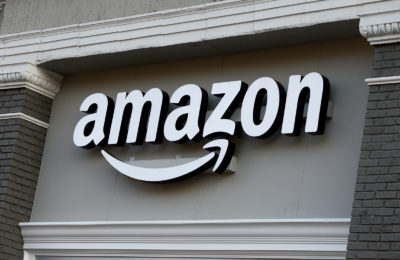
With Amazon considering numerous cities for its next headquarters, Bostonians have to wonder — what would happen if the tech giant decided to pick Boston?
Amazon announced earlier in September their plans to build a second headquarters, called HQ2, which will operate as a “full equal” to their current headquarters located in Seattle. The business could potentially offer up to 50,000 jobs for whichever North American city it chooses, generating tens of billions of dollars in additional investment in the City, according to a press release from Amazon.
The application for cities to apply ends on Oct. 19 and the selected city will be announced sometime in 2018, according to the release.
Boston Mayor Martin Walsh said in a statement that Boston will be submitting a proposal to house the new site.
“I am committed to helping every business that wants to start here, grow here or move here,” Walsh said. “We are the city that is ready to shape that change and meet this challenge: with our talented workforce, with our culture of innovation and with our bold housing plan. Our bid will reflect the values that drive our success. That’s the city we invite Amazon and every employer to be a part of.”
Carlos Rufín, a professor of strategy and international business at Suffolk University, said Amazon’s presence in Boston could increase pressure already evident on Boston’s job market.
“There are a lot of jobs [in Boston], in fact, there’s already a lot of pressure for those jobs on realistic prices and the cost of living in the city and the surrounding areas,” Rufín said. “If Amazon were to come here with the kinds of numbers of jobs they are talking about and the investment, I think that would exacerbate those kinds of pressures that we’re already seeing and it’s difficult for me to see how we would manage that kind of situation.”
Rufín said the main reason as to why Amazon is looking for a different city for HQ2 is due to limitations the company is running into in Seattle.
“The city of Seattle is experiencing a lot of congestion as well, a lot of increasing real estate prices, there’s a fair amount of growing concern in Seattle about the way Amazon has grown there and has kind of taken over the city,” Rufín said. “I think that could cause a similar situation very quickly in Boston and therefore I think we have to be very careful.”
James Dana, a professor of economics and strategy at Northeastern University, wrote in an email that HQ2 coming to Boston would increase wages, but it would also increase taxes, making this a tricky situation.
“These would lead to higher salaries and higher state income taxes and more consumption so more states sales taxes,” Dana wrote. “It would also drive up property values and increase local property taxes. Measuring the impact on state revenues is hard because as wages get pushed up, it makes it less likely that other businesses can find workers and some workers may leave because it drives up housing prices even more.”
While this could negatively affect Boston’s economy, Dana wrote, the presence of HQ2 could draw in other businesses.
“The exciting thing about Amazon is its location decision will likely make other businesses more likely to choose Boston,” Dana wrote. “It’s not easy to know how much Amazon’s choice depends on Mayor Walsh’s deal. I would discourage him from being too generous, but then it’s all about the optics so he would ignore me.”
Boston residents are divided on what HQ2 could bring to the city.
Jane Wiseman, 52, of Back Bay, said she thinks Amazon establishing a second headquarters in Boston would be great for the City, and will be useful for those seeking lower level service jobs.
“Where it’s going to be a game-changer is in the lower level service jobs,” Wiseman said. “That’ll be good for all those people who have lower-paid, lower-skilled jobs.”
Bradley Woody, 36, of Brighton, said HQ2 could contribute to the ongoing housing crisis in Boston.
“It’ll create jobs but it might also make housing worse,” Woody said. “I think we bring something high-end like that to the city, it’ll start to gentrify the area that it’s in.”
Lilia Taningco, 42, of Back Bay, said Boston is a worthy location for Amazon HQ2 and it would be great for the city and its economy.
“It’s going to be fantastic for Boston,” Taningco said. “We have the talent, right? We have the educational talent. It’ll bring everyone here so obviously, it’s gonna be highly competitive.”






















































































































Lori Scanlon • Oct 4, 2017 at 12:12 pm
I think for a city (and state) that has an already unaffordable cost of living for most, this is a disaster!
Think long term. What if Amazon fails after 5 years, dollar collapse, power grid failure…where does that leave us?